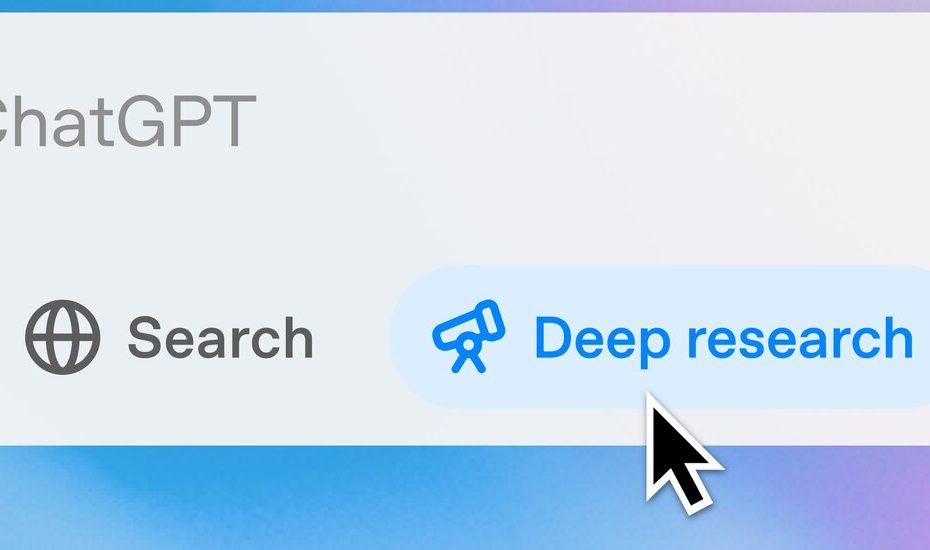A week ago, OpenAi released a tool that can go online to shop for groceries or book a restaurant reservation. Now the AI technology offers that can collect information from the internet and can synthesize it in concise reports.
OpenAi revealed the new tool, called Deep Research, with a demonstration on YouTube on Sunday, days after showing technology to legislators, policy makers and other officials in Washington.
“It can perform complex research tasks that can bring a person from 30 minutes to 30 days,” said Kevin Weil, the Chief Product Officer of OpenAi, during the Washington event. Deep research, on the other hand, can perform such tasks in five to 30 minutes, depending on the complexity.
Researchers of artificial intelligence call this type of technology an AI agent. Although chatbots can answer questions, write poems and generate images, agents can use other software and services on the internet. This can mean anything, from ordering dinner via Doordash to synthesizing information from via the internet.
During the briefing on Capitol Hill, Mr. Weil showed the technological collection of information about Albert Einstein. He asked the tool to compile a detailed report on the physicist for a hypothetical senate employee who is preparing for a conference hearing in which Einstein is a candidate for the American Energy Minister.
In addition to providing information about Einstein's background and personality, it generated five questions that a senator could ask the physicist to determine if he was the right person for the job.
“It can surf the internet and understand text and images and PDFs,” said Mr. Weil. “And it can do this recursively. It can perform one search, and that leads to other searches, and then it can synthesize all the information it has learned. “
Mr Weil said that the reports generated by the tool contained quotes that show where the information was found. But AI technologies such as these can still do things wrong or even come up with information -a phenomenon that calls AI researchers 'hallucination'. This can mean that it offers incorrect quotes.
OpenAi said the tool could struggle to distinguish authoritative information from rumors and that it often does not accurately convey when it was uncertain about the information it provided.
Nevertheless, Mr Weil argued that the Tool could help the United States to speed up economic growth. He added that the tool would be particularly useful for people in areas such as finance, science and rights.
(The New York Times has sued OpenAi and his partner, Microsoft, accuses them of infringing the copyright of news content with regard to AI systems. OpenAi and Microsoft have denied those claims.)
OpenAI said that, from Sunday, deep research would be available for anyone who was subscribed to Chatgpt Pro, a service of $ 200 a month that offers access to all the newest tools from the company. It is planning to also offer the tool through its other paid services.
The tool is based on the same technology that Chatgpt drives. This technology is what AI researchers call a neural network – a mathematical system that can learn skills by analyzing data.
In recent months, OpenAI has developed versions of the technology that can 'reason' through tasks, by trial and error which actions take. Deep research is based on the company's latest reasoning technology, OpenAI O3.

